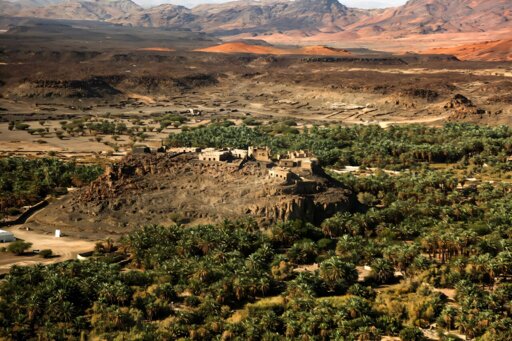- cross-posted to:
- archaeology
- cross-posted to:
- archaeology
The discovery of a 4,000-year-old fortified town hidden in an oasis in modern-day Saudi Arabia reveals how life at the time was slowly changing from a nomadic to an urban existence, archaeologists said on Wednesday.
The remains of the town, dubbed al-Natah, were long concealed by the walled oasis of Khaybar, a green and fertile speck surrounded by desert in the northwest of the Arabian Peninsula.
Then an ancient 14.5 kilometer-long wall was discovered at the site.
Black volcanic rocks called basalt concealed the walls of al-Natah so well that it "protected the site from illegal excavations.
Tombs inside a necropolis there contained metal weapons like axes and daggers as well as stones such as agate, indicating a relatively advanced society for so long ago.
Pieces of pottery “suggest a relatively egalitarian society”, the study said. They are "very pretty but very simple ceramics
Al-Natah was still small compared to cities in Mesopotamia or Egypt during the period.


